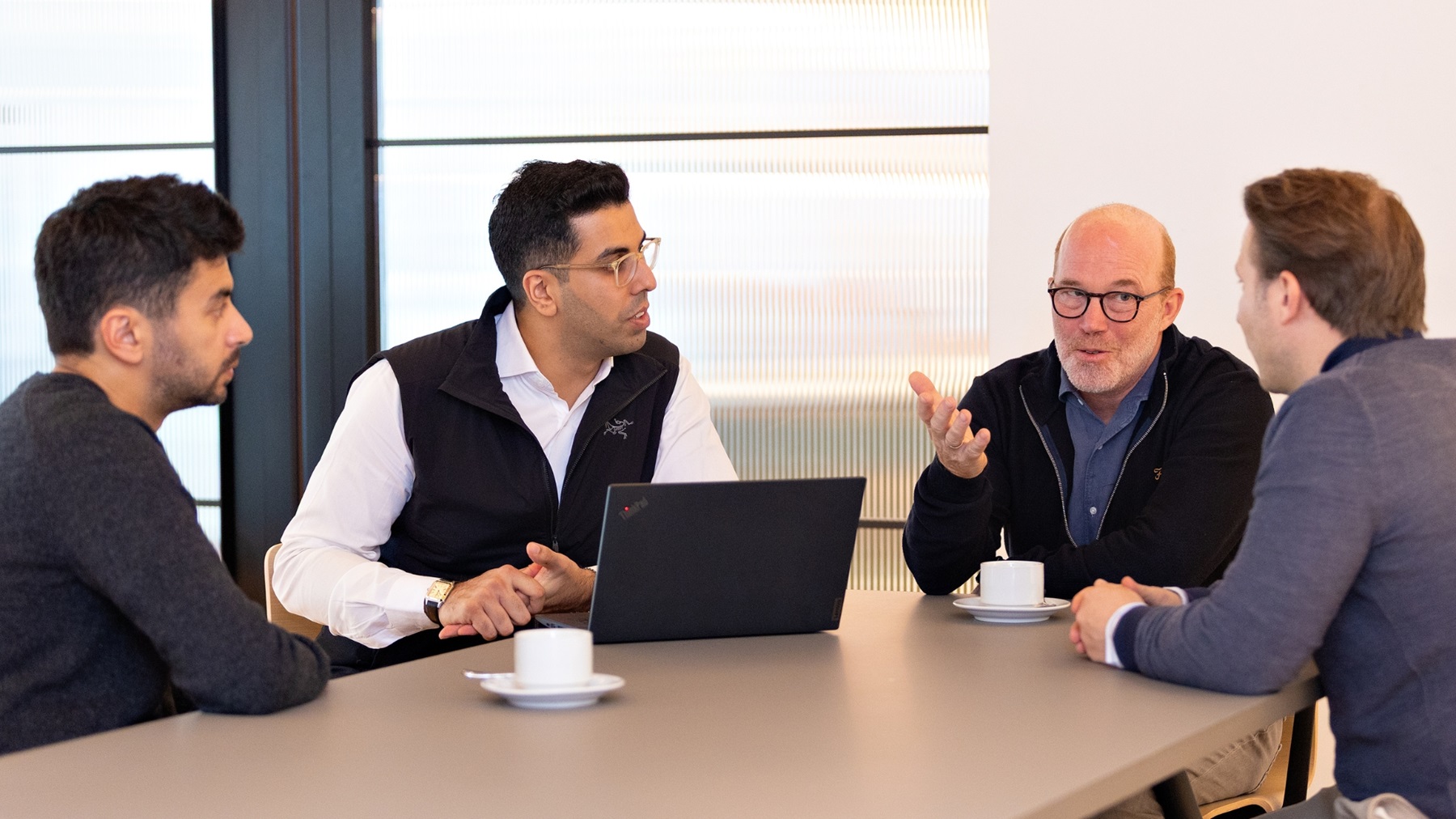What Should European Tech Founders Be Prepared For In 2024? Oliver Holle Shares His Predictions
The start of 2024 has brought a mix of uncertainty, quite a bit of fear, and some much-needed rays of hope for both founders and investors. Everyone, including me, wants to know where and how this all will play out as we kick off the new year.
Times have certainly changed since I founded my first company during the first tech bubble of the early 2000s. After having raised way too much capital, my team and I found ourselves fighting for survival for more than two very tough years. Thanks to a lot of sleepless nights, a successful pivot into mobile data, and a merger with two other startups, my company ultimately became a highly profitable European leader in mobile content and messaging and was ultimately sold to a major US company.
Having been in such a dark spot myself, I can very much relate to a lot of founders out there who are struggling to see the light at the end of the tunnel. The point I would like to make here is that things really can change for the better just as quickly as they can go dark. I have seen it myself. In 2003, I was on my knees and very, very close to shutting my company down. Two years later, we sold for more than €55M in cash. We survived and you can too.
While I am not a big fan of predictions, I do see opportunities on the horizon, which is why I wanted to take a few minutes to share some macro trends and themes that I believe all founders and investors should have on their radar for 2024. I also jumped in front of a camera (not my favorite place to be!) to share three pieces of advice specifically for founders navigating this year.
I hope both the video and the insights below are helpful.
Consolidation will be a big theme, both for startups and the VC industry
The fundraising environment continues to be challenging in 2024. This was not only true for startups, and especially later-stage startups, but also true for VCs. Several new funds emerged in Europe from 2018 until the first half of 2022. And a record amount of VC capital, in general, was raised in Europe during those years.
A lot of these VCs are still deploying capital from the fund generation that was raised during that time frame and there is still significant dry powder in the market. What has shifted, however, is that much of that dry powder invested in the last one-and-a-half years went more into existing portfolio companies, to stabilize them and extend their runway.
VCs will feel the tougher fundraising environment over the next two years when a lot of these VCs will need to raise their next generation of funds. And they may not manage to do so successfully. Or, they will need to raise at a much smaller scale fund than expected. Alternatively, many GPs will try to ‘sit the crisis out’ by significantly extending the investment horizon of their current funds, plus cutting costs –– not great news for founders looking for fresh capital.
If some funds do not manage to raise a follow-up fund in the next several years, this will open up more discussions about mergers and acquisitions in the industry, which I think will happen in a much more radical way than currently anticipated. Consolidation will come in many shapes and sizes, as we have seen with the General Catalyst - La Familia announcement, including fund managers simply dissolving and key talents joining other firms. 2024 will likely be a bit early to see the full impact of this, but this will be the theme in VC land for years to come.
Of course, the same holds for scale-ups. Consolidation will be a huge value driver for those who have the financial backing and the business model to support it. In times where organic growth will be limited by the current huge focus on capital efficiency and the path to profitability, there will be big incentives for growth-seeking CEOs to buy additional revenue from struggling competitors.
Access to funding will continue to be difficult and liquidity mostly out of reach
VC consolidation, in general, will mean fewer VCs with a slower pace of investing, meaning fewer options for founders to get funding.
As has been written before, we already see a massive bifurcation in the market. The best founders and ideas will continue to be able to attract capital at very attractive terms. The worst hit will be founders who are “stuck in the middle.” That is, those who are neither “fresh enough” to raise on the back of a vision, nor have the growth to attract VC money as they have not yet managed to build a cash-flow generating, growing business. Many of them will find it increasingly difficult to maintain their business, especially as mergers and acquisitions for small-cap exits remain subdued and founder teams run out of steam with small ownership and capped upside.
For those able to attract VCs, we will see more later-stage rounds (B+) happening again, especially for the companies that did their homework (reduce burn) and trimmed the business towards a path to profitability while still showing healthy growth. However, it won’t be at the valuation expectations people got used to in 2019-2021. We will, therefore, see a lot of scale-ups that raised money in 2019-2021 still needing to adapt their valuations and, even more importantly, their liquidation preference stacks. They were a side note during the hype years, but structured liquidation preference agreements create massive havoc these days as incentives increasingly drift apart between founders and early-stage investors vs. the late-stage guys who sit on top of these distribution arrangements. Why? Because if valuation expectations for the future fall beyond a certain level (let's say a former unicorn is now valued at only a few hundred million), late-stage investors may choose an early exit where they at least get their money back while everyone else sees nothing.
That being said, we believe there will be exits happening again at a higher rate than last year. Large corporates are sitting on plenty of cash and face similar pressures in terms of organic growth as the founders mentioned above. Plus, they need to show action when it comes to AI and other key technology themes, and strategic M&A - at relatively cheap valuations - will be an easy answer for many. In pure self-interest, we also hope that the IPO window will start opening up again, although, realistically, this will most likely not happen in 2024.
AI will continue to disrupt the market but differently
A new wave of AI companies will emerge in Europe that tackle the hard infrastructure and safety issues still painfully visible with AI, and they will attract significant capital. This will happen in parallel to the massive capital inflows in LLM foundational models. These companies will be a lot more capital efficient as they will follow more traditional enterprise / SaaS business models that don’t scale as quickly but also require much less capital. Yet, a lot of value will be created there if you have the patience.
In general, there will be plenty of disillusionment around the AI hype of 2023 as many - especially larger - corporates will find it hard to quickly generate business value from LLMs, as they do with any new tech paradigm. As a response to these challenges, we will see a large and fast-growing service industry that will focus on AI implementation work, not scalable but a nice business opportunity in the short term!
We’ll also see more and more surprise winners coming from the various verticals that have successfully implemented AI to 10x their value proposition and will show corresponding scale and momentum. Many of them may not have raised based on AI originally but have adapted the fastest and will raise massive rounds as, with the introduction of AI, their original value proposition suddenly becomes significantly more attractive and scalable.
Europe’s innovation economy, far from being stuck in a museum, will see an opening in the new geopolitical reality
Despite the grim macro picture, both economically and politically, we firmly believe that Europe is much stronger than before 2019. Though the current environment will continue to be difficult, there is no doubt that the innovation economy in Europe will show tremendous growth. There are several specific reasons why I firmly believe in this.
First, we have to acknowledge that in certain areas, Europe is desperately left behind, mainly driven by access to capital and willingness to take risks - think LLM’s and OpenAi. Yet, it becomes increasingly clear that there are certain massive sectors where Europe has a structural and cultural edge – where homegrown innovative players will play an increasingly important role on the international tech scene, think Deep Tech, Health, Pharma, and Climate. Big public funds like DTCF (DeepTech & Climate Fonds) and EIC (European Innovation Council) will become much more active and will further propel the above themes, while more and more repeat entrepreneurs enter these segments.
Traditional VC themes, such as fintech and marketplaces, will reinvent themselves at the intersection of the above megatrends, enabling and embedding their scalable business models into these use cases.
At the same time, ongoing global geopolitical uncertainties and an ever-increasing rift between the tech communities in China and the US will lead to increased strategic interest in Europe and capital flowing from both Asia and the US for as long as those respective markets remain closed to each other.
Don’t forget: the business cycle also includes upswings
No one has a crystal ball. We're all a bit anxious to see how the year ultimately plays out. But I'm personally confident in the future, for sure in the long term.
Short term, we will have to adjust. Adjust our expectations, and take a more sober perspective on short-term growth, short-term liquidity, and short-term success.
The economy and our portfolio companies will face a tough battle for quite a while and there is no other option than to stick it out. Those who endure it will reap the benefits once we’re through the tunnel. People forget that this is a cyclical industry, both when the sun shines and when it is quite dark. It will get better, and when it does, the sun will shine surprisingly bright.
Want more updates on our portfolio? Sign up for our monthly newsletter and follow us on LinkedIn.













.svg)
